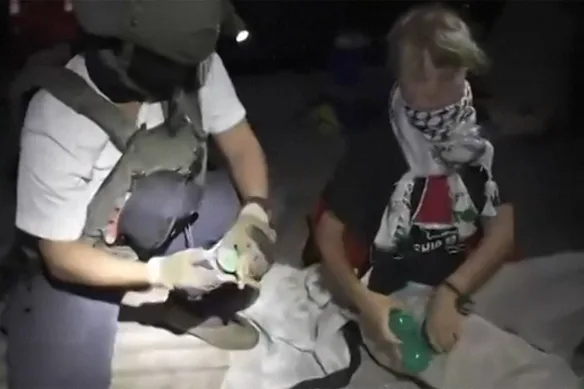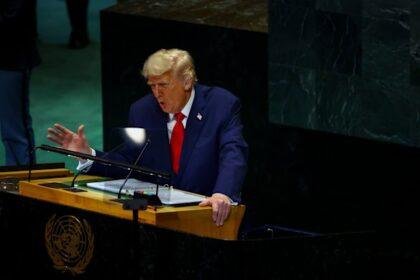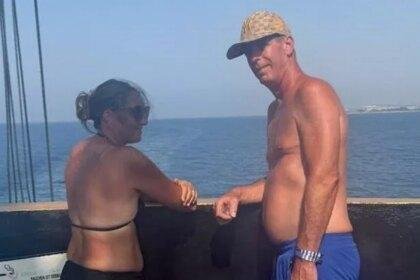International Activists Deported from Israel Amid Controversial Flotilla Incident
In a significant escalation of tensions surrounding the ongoing Israeli-Palestinian conflict, Israel has deported 171 activists, including prominent climate activist Greta Thunberg, following the interception of a flotilla attempting to breach its naval blockade of Gaza. This action has drawn widespread condemnation and sparked protests across the globe, highlighting the complex interplay of humanitarian efforts, international law, and geopolitical dynamics.
Background of the Flotilla Incident
The flotilla, which aimed to deliver humanitarian aid to Gaza, was intercepted by Israeli naval forces last week. Israel’s military has long maintained a blockade on Gaza, citing security concerns, particularly the prevention of arms smuggling to Hamas, the governing body in the region. However, critics argue that the blockade exacerbates humanitarian crises and violates international law.
The Israeli Foreign Ministry announced the deportation of the activists on social media, stating that the individuals were citizens of various countries, including Greece, Italy, France, and the United States. This brings the total number of deported individuals to 341 out of 479 detained during the operation. The ministry shared images of the activists, including Thunberg, dressed in white T-shirts and grey sweatpants, as they were processed for deportation.
Global Reactions and Protests
The interception of the flotilla has ignited protests in cities worldwide, with demonstrators expressing solidarity with the detained activists and condemning Israel’s actions. The Australian Department of Foreign Affairs and Trade confirmed that it is providing consular assistance to seven Australians detained during the incident, including visits to Ketziot prison in the Negev Desert.
Supporters of the detained activists have raised serious allegations of mistreatment, claiming that detainees have faced physical and psychological abuse, including sleep deprivation and denial of essential medications. A spokesperson for the Australian government acknowledged the distressing situation for the detainees and their families, emphasizing the expectation of humane treatment in accordance with international norms.
Legal and Human Rights Concerns
Lubna Tuma, a lawyer with the legal rights organization Adalah, has been representing the detained activists. She reported that approximately 150 individuals remain in custody, including Mandla Mandela, the grandson of the late South African leader Nelson Mandela. Tuma revealed that around 40 detainees, many of whom are Tunisian, have initiated a hunger strike, refusing food and water until their demands for medical treatment are met.
The legal team from Adalah has documented numerous violations of the activists’ rights, beginning with their interception in international waters and continuing through their detention in a maximum-security facility. Tuma stated that the treatment of the activists has included physical violence and humiliation, claims that Israeli authorities have categorically denied.
Divergent Experiences Among Detainees
Testimonies from deported activists reveal a stark contrast in treatment based on nationality. Roos Ykema, a Dutch activist, described her experience as relatively mild, stating, “We got the European treatment.” In contrast, North African nationals reported harsher treatment, with one Moroccan activist, Ayoub Habraoui, alleging that he and others were subjected to physical abuse and kept kneeling under the sun for hours.
This disparity raises critical questions about the treatment of detainees based on their nationality and the broader implications for human rights within the context of international humanitarian law. The allegations of mistreatment have prompted calls for independent investigations into the conduct of Israeli authorities during the flotilla interception.
The Broader Context of the Israeli-Palestinian Conflict
The flotilla incident is not an isolated event but rather part of a long-standing and deeply entrenched conflict that has seen numerous humanitarian efforts thwarted by political and military actions. The blockade of Gaza has been a focal point of international criticism, with many arguing that it constitutes collective punishment against the Palestinian population.
Historically, similar flotilla attempts have been met with resistance from Israeli forces, often resulting in international outcry. The 2010 Gaza flotilla raid, which resulted in the deaths of nine activists, remains a poignant reminder of the volatility surrounding such humanitarian missions.
Conclusion
The deportation of activists, including Greta Thunberg, from Israel following the interception of the Gaza-bound flotilla has reignited debates over humanitarian access, international law, and the treatment of detainees. As protests erupt globally and allegations of mistreatment surface, the incident underscores the complexities of the Israeli-Palestinian conflict and the challenges faced by those advocating for humanitarian aid in the region. The situation remains fluid, with ongoing calls for accountability and respect for human rights as the world watches closely.











